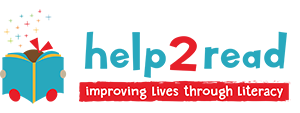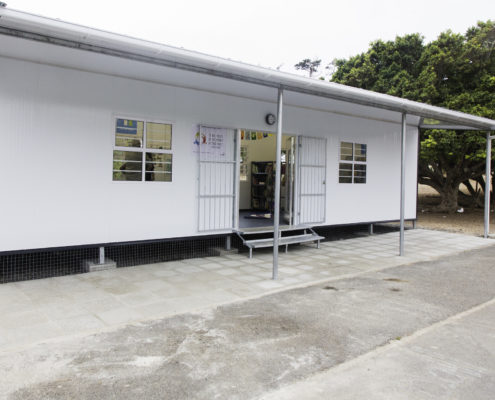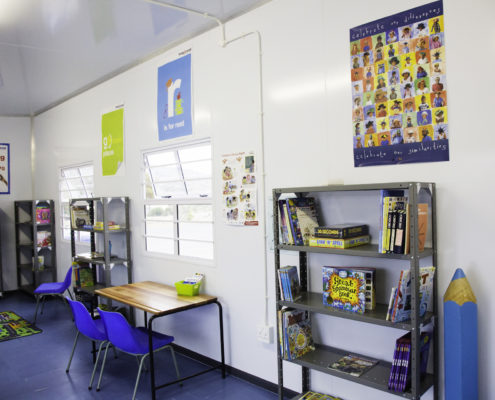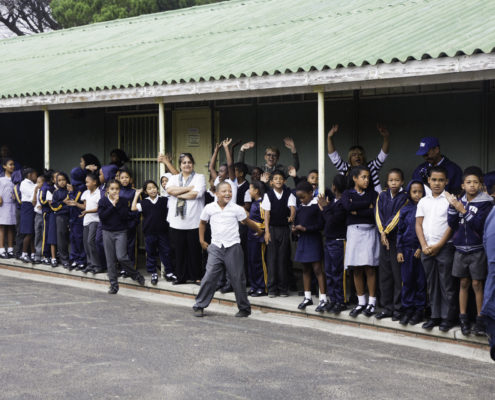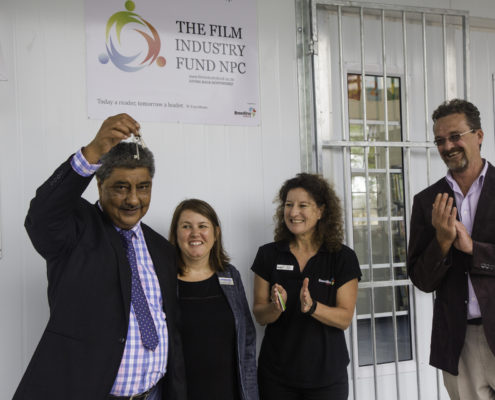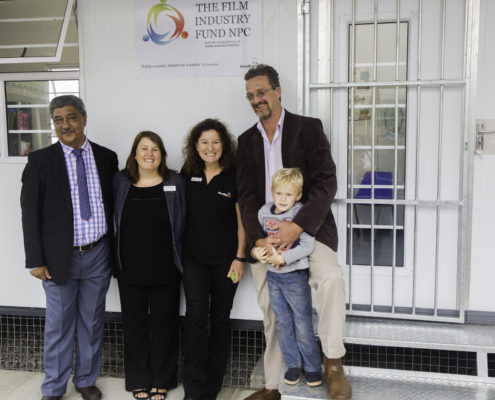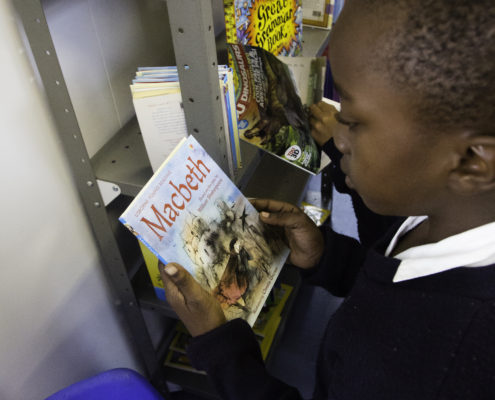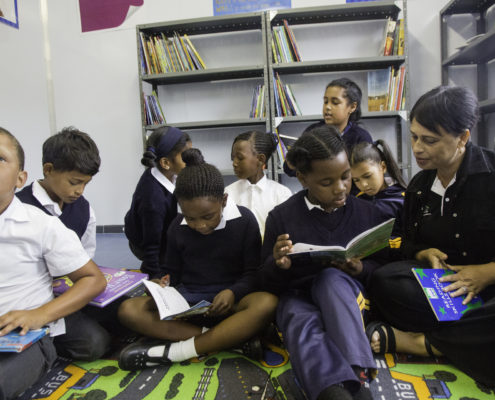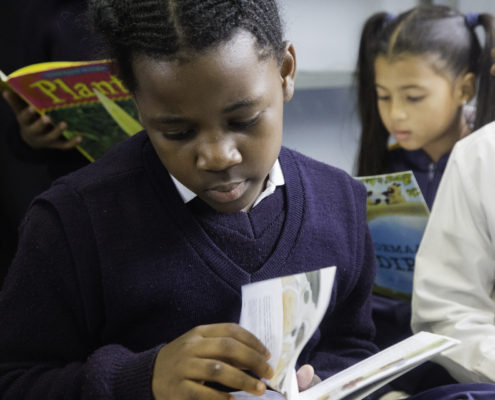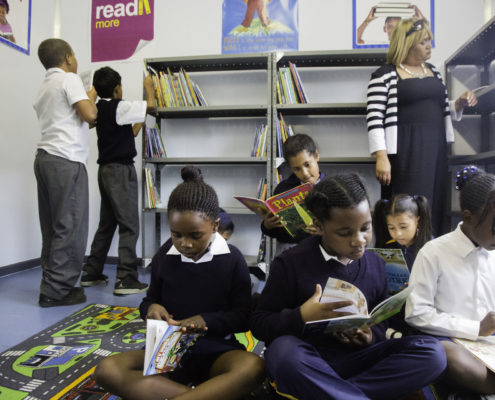Who Is Who In Literacy – Meet Breadline Africa
5 May, 2017
A lack of proper infrastructure and access to books are two major contributing factors to the literacy crisis in South Africa. Thankfully, there are organisations around the country that are dedicated to creating safe, educational spaces where children can not only access books, but fall in love with reading.
In our third instalment of our Who Is Who In Literacy series we feature Breadline Africa, an NGO that’s building early education and literacy through converted shipping containers. We spoke to Marion Wagner (Director) and Diane Laugksch (Strategic Partnerships Manager) about Breadline Africa and its work across the country.
Having been established in 1993, Breadline has rich history of impacting under-resourced communities. How did Breadline originally get started?
Breadline Africa recognised that a great deal of grassroots development had to take place as part of the nation-building process, and that government structures would not be in a position to provide all of the resources needed to facilitate this process.
For many years, Breadline Africa acted as a grantmaker, focussing on community-based organisations in impoverished, rural communities. Since its establishment, Breadline Africa has raised more than R117-million, which has been distributed to more than 330 organisations.
Over the years, we recognised the need to focus our efforts on what we do best. Since converted shipping containers (and more recently pre-fabricated units) have always been a part of our offering, the decision was made to specialise in infrastructure provision at well-established projects that concentrate on early childhood development and literacy. These structures are predominantly used as classrooms, libraries, kitchens and toilet facilities.
South Africa faces major challenges when it comes to literacy. What are some of the hurdles that you encounter working in under-resourced areas, specifically with regards to literacy and early childhood development?
The infographics below highlight some of the problems faced by South African children when it comes to early childhood development literacy.


How does Breadline address these hurdles?
We recognise that literacy is critical for children’s long-term success and indeed, fundamental for children to obtain the high-level skills needed by a nation to address issues of poverty and inequality for development and growth. Well-stocked, age appropriate libraries provide opportunities for improving literacy but, sadly, 80% of schools in South Africa do not have such a facility. It is this huge gap in infrastructure provision that Breadline Africa tries to address.
In the case of Early Childhood Development Centres (ECDs), the infrastructure that we place is intended to provide safe spaces, which research has shown is necessary for improved mental and physical health, along with school readiness. Many ECDs in poorer communities operate out of the founder’s house. These are often shack-type structures which, in many instances, we find to be cramped and unsafe. During the winter months these structures leak, leaving children in cold, damp environments. In very many instances, we also find inadequate toilets or kitchen facilities, which Breadline Africa then replaces as funding allows.
We also recognise the importance of effective partnerships to ensure long-term sustainability of the organisations that we support. In the case of libraries, we have learnt that providing a library facility and books does not ensure that it will be used.
Critically important is the buy-in from all teachers to create opportunities for all learners to routinely access the library and its resources. It is also critical that systems are put in place to make it possible for learners to borrow books.
We have seen that schools that have access to additional on-site literacy development support, through partners such as help2read, Shine Literacy and Room to Read are more successful in sustaining regular access to and utilisation of the library. We have, therefore, recently changed our model to ensure that the schools that we support are open to, or already have this kind of support to aid the school’s literacy development strategies.
Can you tell us more about your Library Project?
To date, Breadline Africa has provided more than 75 libraries and/or media centres in all nine provinces of South Africa. Typically, these are 12m shipping containers that have been converted according to the specifications detailed in the attached sketch. We also try to provision each library with a starter pack of roughly 1,800 books, which will include books published in the home language of learners at
the school. Since 2017, we give preference to schools that work directly with a literacy support/development partner that is able to support the school by ensuring that all learners have routine access to, and use of, the resources in the libraries.
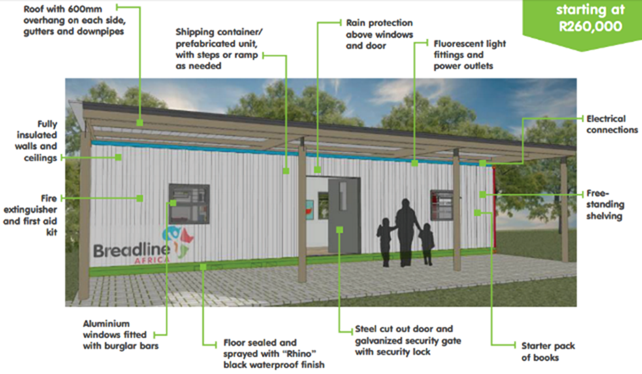
How does a community or organisation apply for a library?
We have an open application process and we receive applications throughout the year. Our application form can be found on our website, here.
How can other organisations, whether schools or literacy NGOs, support and be supported by Breadline’s efforts?
Strategically, Breadline Africa would like to focus solely on being an infrastructure provider when placing libraries. This means that we need to identify on-site partners who will work with schools to ensure that libraries are effectively used and sustained. Such a partner would also hold responsibility for routine M&E reporting to Breadline Africa with outcome/impact measures being relative to the initiatives/programmes being delivered. Our challenge is that currently no single nationwide partner exists. We are, therefore, keen to identify literacy support organisations, across South Africa who might be willing to partner with Breadline Africa to turn our libraries into spaces where children are supported to develop a love for reading.
In March 2017, help2read partnered with Breadline Africa to resource Kleinberg Primary School’s new container library with books and literacy resources. As a help2read school for more than nine years, Kleinberg previously had no suitable area for learners to receive reading support. Now, their stunning library provides the perfect place for learners to fall in love with reading. To read more about the library launch at Kleinberg Primary School, click here.

Registered SA Non-Profit 063-979 PBO 930027054 UK Charity Reg No. 1109567 Registered Office: Oak Farm Cottage, Mill Street, Gislingham, Suffolk, IP23 8JT
